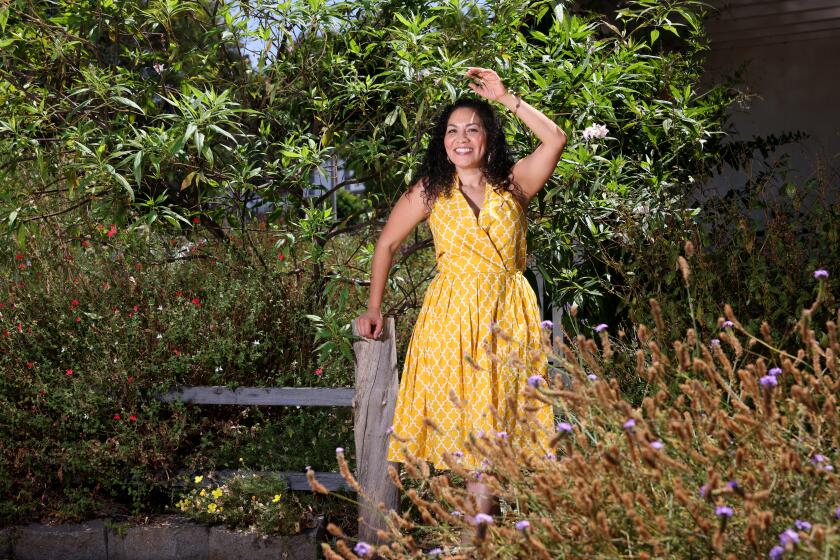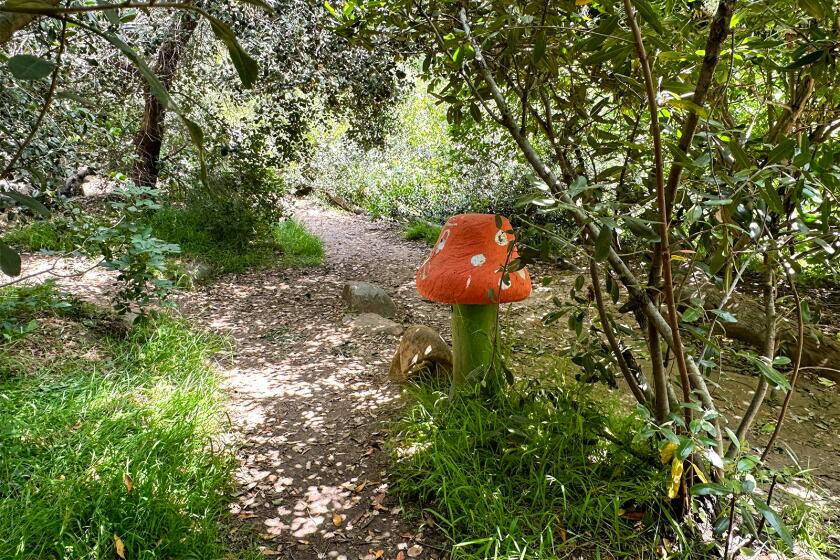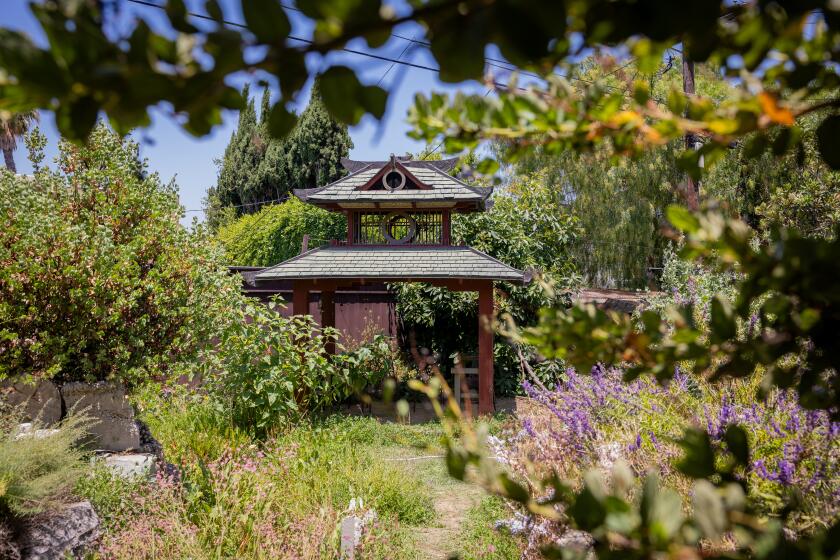Confessions of a chronic shed slob
MY KINGDOM for a Martha Stewart shed, for a Smith & Hawken potting table, a cream-colored pegboard with the perfectly hung tools, an enameled and labeled can with fluffy potting soil and an alphabetized seed file -- how I long to be as proper as the gardeners in magazines and on TV programs.
If I had a shed like that, my actual garden would have no problem this year acing the garden contests. But in my last shed inventory, the contents included Christmas tree ornaments of a festive but forgetful lodger who moved out in 1998, a Food 4 Less shopping cart filled with kinked and leaky hoses and broken sprinklers, a toilet with a cracked lid, sacks of concrete that set without ever having been mixed, mismatched curtain rods, rusting tomato cages, and all manner of paper files that became somehow hard to throw away.
How did this happen? After I moved into my house 10 years ago, I used the shed for random storage instead of as a dedicated work space. In went the notionally usable and fixable that would never be used or fixed: Worn-down brooms, hundreds of black nursery pots, dozens of cans of paint samples, petroleum gone to jelly for a mulcher that didn’t mulch. The mulcher itself.
Once the shed got so full that I had to stop hoarding, I did what many gardeners do. I ignored it. Tools lived within an arm’s reach of the door, so I didn’t even have to enter the structure but could stand at the door and feel around for the shovel, rake or pick. The wheelbarrow found a new home around the side of the house. Hand tools moved into the house, where they got cleaned and greased more often.
Ivy enveloped the eastern side of the building, bougainvillea the west.
It took the Los Angeles Bureau of Sanitation to out-psych this slob. I called the city to schedule a “Bulky Item” pickup. But a cheerily sadistic operator demanded an itemized list of what I was going to donate to the dump before she would schedule me in.
Moving the junk was the easy part. Or so I thought. Had there been rat nests among the ivy shoots and filth swept up that day? That evening, I had all the early symptoms of hantavirus, which turned out to be identical to being sore after a hard day’s work.
The oddest thing was what happened once I had cleared out a work space. I had no desire for a Smith & Hawken potting table. I liked my wheelbarrow around the side of the house, halfway between front and back. My tools belonged right inside the stable door, exactly where they’d been for 10 years, and could be grabbed quickly and from memory. The more expensive hand tools that need routine cleaning and sharpening were better off living in a kit in the kitchen, where I could treat them with bleach and oil while drinking morning coffee.
Being a shed slob came as no surprise. But that it could be a good thing never occurred to me until I stumbled across the recently released paperback “A Perfect Mess” by Eric Abrahamson and David H. Freedman. This book cuts straight to the heart of the myth about how organized people are more efficient. They’re efficient at being organized, says Freedman in a phone interview. But if you want to be a good gardener, being a moderate slob is probably the way to go. “How do you want to spend your time?” he asks. “Organizing or doing?”
“One of the real nice things about allowing yourself to be a little bit messy,” he says, “is you get to wing it. You may make connections between different things. Creativity can be intimately tied with being somewhat messy.”
Safety, he says, is an excellent reason to stray over to the dark side and do a bit of clearing. So if you’ve got paint thinner, petroleum, pesticides or dangerous building materials in your shed, you’ll have no argument from Freedman that the time is ripe to get thee to a city hazardous waste drop-off.
But otherwise, if your garden looks good and your shed doesn’t, it’s probably as it should be. In a parting e-mail, Freedman signs off, “My goal is to make the world a slightly messier place every day. Fortunately, I’ve got physics, human nature, and all of history on my side.”
Spoken like a true gardener.
--



